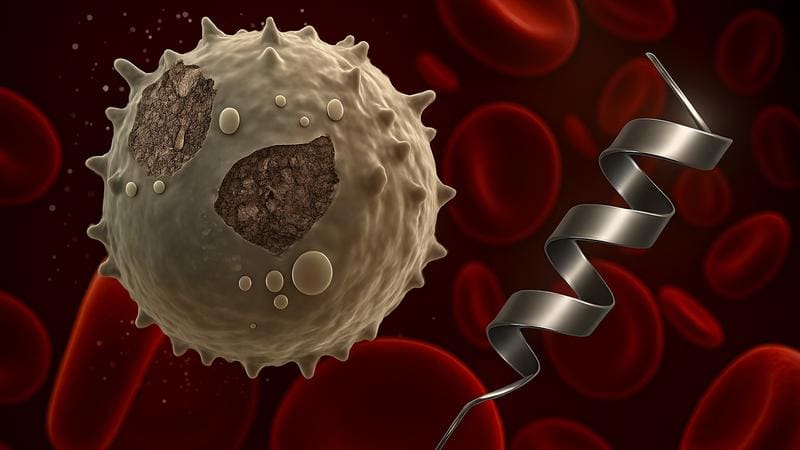New therapeutic approaches against aggressive childhood leukemia
Researchers at the University of Duisburg-Essen are researching a novel therapeutic approach against particularly aggressive childhood leukemia. The project, which is funded by the Jos├® Carreras Leukemia Foundation with around 144,000 euros, focuses on the targeted degradation of the enzyme taspase 1, which plays a central role in acute lymphoblastic leukemia (ALL) and acute myeloid leukemia (AML). The research team led by Prof. Dr. Shirley Knauer and Dr. Mike Bl├╝ggel is developing specially adapted nanobody PROTACs (Proteolysis Targeting Chimeras) for the first time, which differentiate between the two leukemia subtypes and thus selectively attack diseased tissue while healthy tissue remains intact.
Nanobody PROTACs are molecules that link a binding module for the target protein to a signal that causes the cell to destroy that protein. The use of so-called helicons ŌĆō small spiral-like protein molecules that act as a bridge between the nanobody and the cell’s own degradation systems ŌĆō is also innovative, thus initiating precise removal of the disease-relevant protein.

The project opens up new avenues in personalized leukemia treatment by using the different intracellular degradation signals of the two forms of leukemia for therapy for the first time. This promises not only higher efficacy, but also better tolerability compared to conventional treatment methods.
Nanobody PROTACs as a modular platform could also be transferred to other types of cancer and target proteins in the future. The researchers see great potential in their approach to decisively advance the personalized therapy of previously incurable leukemia in children.
The project combines state-of-the-art methods from molecular biology, biochemistry and structural biology and benefits from targeted funding from the Jos├® Carreras Leukemia Foundation. In the long term, the findings could be groundbreaking for innovative cancer treatments that specifically combat aggressive tumor tissue while largely sparing healthy cells.
Further information:
Editor: X-Press Journalistenb├╝ro GbR
Gender Notice. The personal designations used in this text always refer equally to female, male and diverse persons. Double/triple naming and gendered designations are used for better readability. ected.




